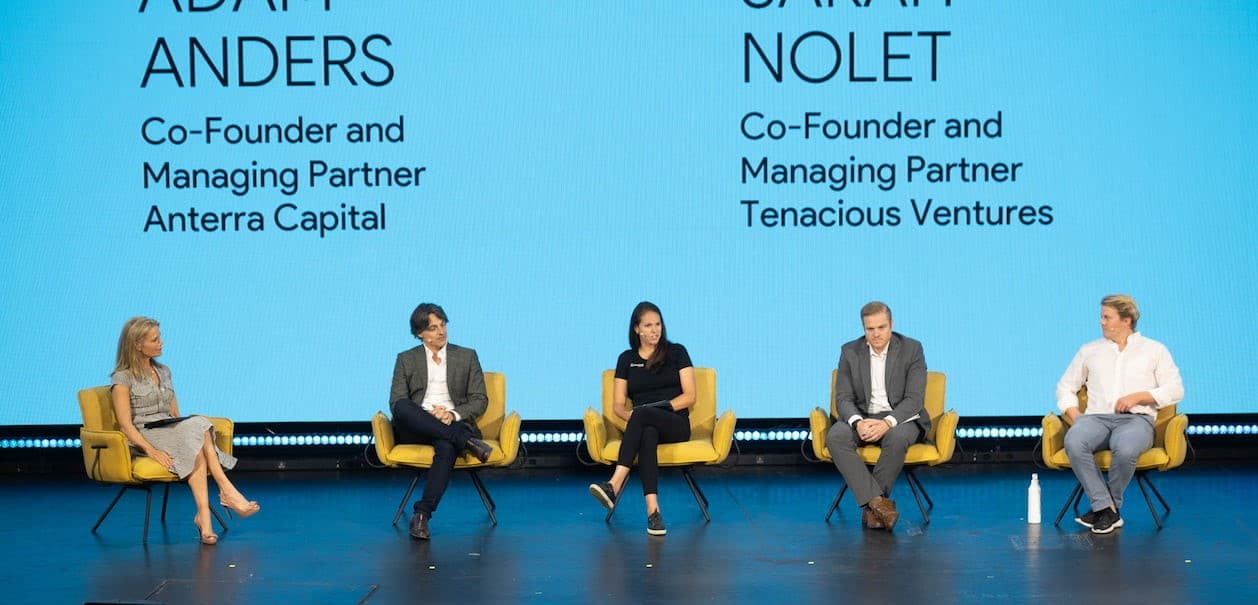Once a novel concept, ‘impact investing’ is now a primary focus for many venture capitalists, as they seek investments that are sustainable as well as offering a high yield.
Impact investing – investments that have a positive environmental or social outcome – was a key theme discussed at the national evokeAG conference, held in Perth on February 20 and 21.
A panel discussion with national and international investors highlighted the need for a collaborative and visionary approach to drive innovation and support businesses to solve complex current and future challenges.

L-R: Sirona Ventures Founder Robyn O’Brien (moderator), Anterra Capital Co-Founder and Managing Partner Adam Anders, Tenacious Ventures Co-Founder and Managing Partner Sarah Nolet, Temasek Director Ryan Rakestraw and Wollemi Captial Director Chris Thomas. Image: evokeAG / AgriFutures.
What do investors look for?
Chris Thomas, Director of Wollemi Capital – an Australian-based global climate investment firm – says that understanding the climate impact is his first consideration when looking at an investment opportunity.
“Within the climate space we are primarily growth-stage investors. So, typically we’re looking for businesses which have de-risked the technology aspects of their solution,” he told CCIWA.
“And we’re also looking for clear evidence that customer demand has been de-risked, often through contracted offtake agreements.
“We can then provide the growth capital to help proven solutions scale up to meet that growing market demand.”
Sarah Nolet, Tenacious Ventures Co-founder and Managing Director – Australia’s first agrifood tech venture capitalist – says the firm has a three-part investment criterion, with a “team centric” process.
This starts with the team, then the company – including technology and how “commercially progressive they are”, followed by the investment partnership.
“If I had to only pick one thing to assess, team would obviously be the biggest one, at least at this stage,” she told CCIWA.
How can a business standout to investors?

Going through official channels with a finessed and quality pitch will likely give you the best chance.
“We have assessed over 1,500 opportunities in the last five years,” Nolet says.
“But I think there’s a lot of bias in the industry and one way we try to reduce that is to have everyone come through the same process, so while warm introductions and connections are good, we have a form on our website that we review every week.”
Challenges pose opportunities
Rising operating costs have continued to be the primary barrier to business growth, with factors such as industrial relations changes and environmental, social and governance (ESG) expectations adding more pressure for businesses.
However, Nolet says businesses can choose to look at these challenges from another angle, as they can give rise to opportunities.
“There is no trend that is universally good or bad because these things have two sides of the coin,” she says.
“For example, ESG – yes, that has been a cost, but it can also create opportunities where we’ve seen companies opening premium opportunities or adopting software that helps them do ESG reporting that might also make them more efficient in other areas of their business. It can kick off an investment that they were otherwise putting off.”
If you are looking for support or advice in business, investment or trade, contact our experienced International Trade Services team at [email protected].












